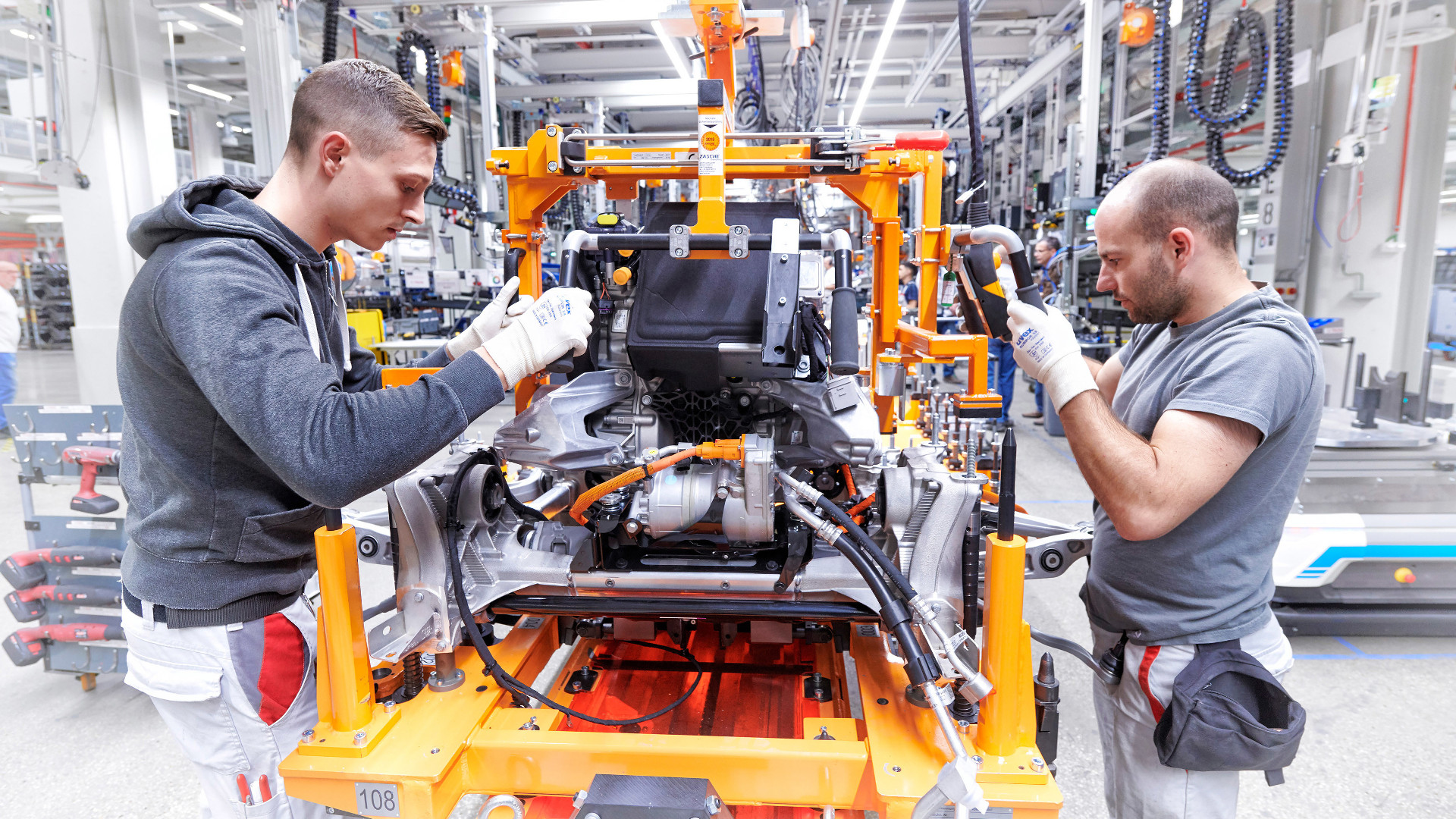

There are only about 540 electric Audi e-tron SUVs currently in the hands of customers, but they are already enduring their first recall. According to an Audi of America statement out this morning, the highly-anticipated first pure EV from the German brand has a “potentially faulty seal” in its battery compartment that could potentially cause a short circuit and a fire.
The brand’s statement reads as follows:
“Audi of America takes the safety of its customers and the quality of our vehicles very seriously. In order to ensure the highest levels of safety and quality for our customers, we have issued a voluntary recall affecting approximately 540 e-tron vehicles that have been delivered to customers and 1,644 in total. The recall is in response to a potentially faulty seal that may allow moisture to enter the battery compartment which could lead to a short circuit or in extreme cases to a thermal event. We are applying an abundance of caution as no such incidents have been reported globally. The recall repair is expected to become available in August 2019.
“Customers are being contacted directly to inform them of the recall and our dealer network is fully engaged to deliver the best customer-service possible. We regret any inconvenience caused to our customers and reservation holders as we work with all parties toward a positive outcome in the weeks ahead. Audi e-tron vehicles unaffected by the recall remain available for delivery and our reservation system remains open to receive customer reservations.”
Audi of America
Forum reports say Audi is giving customers the choice of continuing to drive the vehicle until a warning light comes on, or turning it in for a loaner vehicle. Customers also report receiving an $800 gift car for the gas they will likely consume between now and when the repair parts arrive in August. Apparently undelivered E-trons are being pre-emptively held for repairs, and E-tron owners who for any reason have not been contacted can enter their VINs here to find out if their vehicle is affected.
The term “recall” is always a loaded issue, as are electric vehicle fires and anything that competes with Tesla, so naturally today’s news is inspiring a variety of interpretations. As Audi makes clear, there is no evidence of any incidents of fire related to this problem but the mere potential for this defect to create a fire risk is prompting a recall anyway. What the people trying to turn this into a scandal forget is that early recalls are always the right thing to do, and not something to be stigmatized.
The worst automotive safety scandals come when automakers are afraid of the negative publicity that the term “recall” brings and instead tries to fix a problem with safety consequences with a “stealth recall” or technical service bulletin rather than a proper recall. This is what happened with GM’s ignition switch problem, which killed at least 124 people, as well as a less-known problem with high-voltage contactors that caused a similar sudden loss of power in Teslas but which the company fixed with a global “stealth recall.” Given Tesla’s handling
Yes, this problem does show that companies like Audi do face new challenges with electric vehicle technology but it also shows why Audi is dipping a toe in with the low-volume E-tron. By launching their EV efforts with limited-production vehicles like the E-Tron, Jaguar’s I-Pace and the Mercedes EQC, major automakers are learning these lessons at a manageable scale. Had they leaped headlong into pure EVs at massive scale (as many of these same critics say they should have), these tough lessons could have had major financial, logistical and consumer experience-related consequences.
One potentially faulty seal does not mean that electric vehicles are fundamentally more difficult to manufacture than internal combustion cars, however. Given the struggles that all pure electric vehicles have endured (and will likely continue to face) when it comes to profitability and mass-market acceptance, that’s probably a good thing.